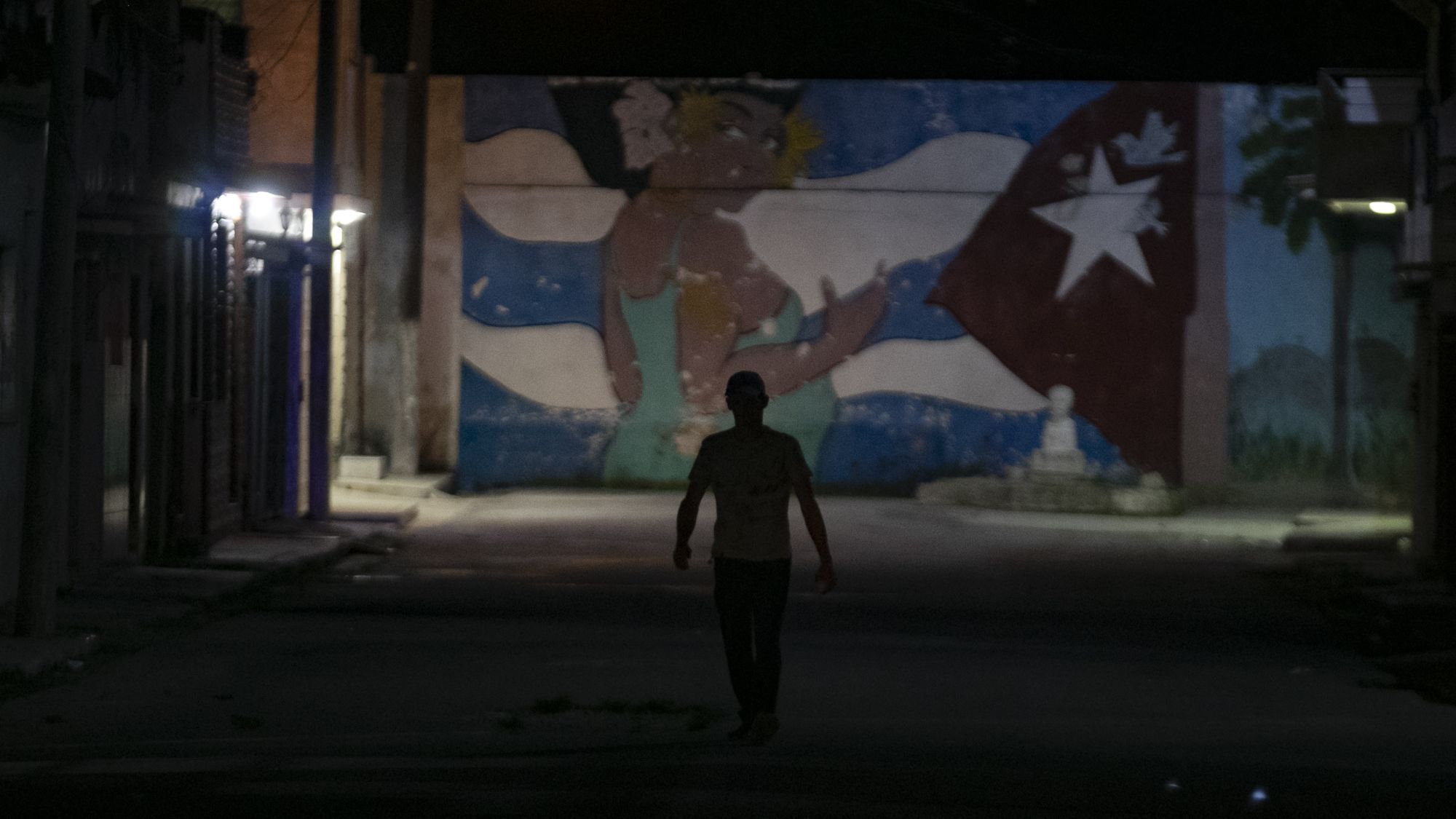Cuba's energy crisis
Already beset by a host of issues, the island nation is struggling with nationwide blackouts

A free daily email with the biggest news stories of the day – and the best features from TheWeek.com
You are now subscribed
Your newsletter sign-up was successful
Cuba was once again plunged into darkness this week, in nationwide blackouts that have left many without access to food or water. The nation's power grid has collapsed several times and, while electricity was restored in some areas, some places have been left waiting for days to receive assistance.
While the causes of the crisis are "multifaceted", the blackouts are considered "a new low" for a government already struggling with public perception, said NPR.
Who is affected?
"About half" of the Caribbean nation was initially affected by the failure of the Antonio Guiteras thermoelectric plant, just east of the capital city of Havana, said the Associated Press. Soon, the whole island was hit by energy outages, and on 18 October the government announced that the national grid had been "totally disconnected".
The Week
Escape your echo chamber. Get the facts behind the news, plus analysis from multiple perspectives.

Sign up for The Week's Free Newsletters
From our morning news briefing to a weekly Good News Newsletter, get the best of The Week delivered directly to your inbox.
From our morning news briefing to a weekly Good News Newsletter, get the best of The Week delivered directly to your inbox.
With no power, food was starting to "rot in fridges" and many homes were "without water", said the BBC. Amid "desperate" circumstances, the government was forced to temporarily "paralyse the economy", halting non-vital state services and closing schools as well as "shuttering all cultural activities and recreation centres such as discos", said Al Jazeera. Businesses across the island have been forced to close their doors.
Why is electricity so unreliable?
Blackouts are not uncommon in Cuba. Across the country, power plants are "dilapidated and in desperate need of maintenance", with a crisis like this "years in the making", said NPR. Cuba's electric system is an "almendrón", Cuban energy expert Jorge Piñón told El Pais, a term used "for the classic American cars from the 1950s" famous in the nation's capital, which continually break down. Powering the island in 2024 is "as if you wanted to compete in the Monaco Grand Prix with that 1950s car", he added.
As the Caribbean nation produces little fuel, it is reliant on imports to "keep the electrical grid afloat", said NPR. Issues have been exacerbated by Venezuela, the country's ally and "principal provider of fuel", rolling back its shipments, the broadcaster added. Mexico and Russia have followed suit, leaving Cuba in limbo. Cuban politicians have also blamed the United States trade embargo, and a range of Donald Trump-imposed sanctions for ongoing difficulties. The US has denied being to blame for the current grid collapse.
How are Cubans reacting?
Some Cubans have taken to the streets in a "rare show of open dissent" in the Communist nation, one which could land them in prison, said the BBC. Chanting "turn on the lights", the citizens have been "banging pots and pans" in defiance. Patience wore "thin" during protests, but Cuban president Miguel Díaz-Canel urged Cubans to act with "discipline" and "civility" in a nationwide address on Sunday.
A free daily email with the biggest news stories of the day – and the best features from TheWeek.com
In Havana, the situation has reached boiling point, with residents describing blackouts "as long as 18 to 20 hours a day", as the "last straw" in a growing list of issues across the nation, said Reuters. Dusk has become a "particularly frenetic" time, as people emerge from their homes to form "long queues" for bread, while others search for water and news of what may happen next, The Guardian said.
What will happen next?
Power is being restored across large areas of the nation, but the fix is a "short-term solution" with the "next national collapse" potentially "just around the corner", said El Pais.
Clean energy may be one answer, with the nation pledging to generate 37% of its electricity "from renewable sources by 2030", the newspaper added. However, critics have questioned the feasibility of such a plan given the scale of the ongoing crisis. Cuba is set to establish "26 solar farms" in the hopes of meeting "about one-third of existing demand" in the next two years, said Reuters. But plans so far have been hampered by "economic crisis, fuel shortages and funding shortfalls".
In the meantime, the myriad issues Cuba faces are likely to "fuel a further exodus" from a nation already struggling with the departure of hundreds of thousands of its citizens, said Vox. As dissent continues to grow, observers are already witnessing a "new wave of emigration", which is only likely to increase if problems are not soon addressed.
Rebekah Evans joined The Week as newsletter editor in 2023 and has written on subjects ranging from Ukraine and Afghanistan to fast fashion and "brotox". She started her career at Reach plc, where she cut her teeth on news, before pivoting into personal finance at the height of the pandemic and cost-of-living crisis. Social affairs is another of her passions, and she has interviewed people from across the world and from all walks of life. Rebekah completed an NCTJ with the Press Association and has written for publications including The Guardian, The Week magazine, the Press Association and local newspapers.